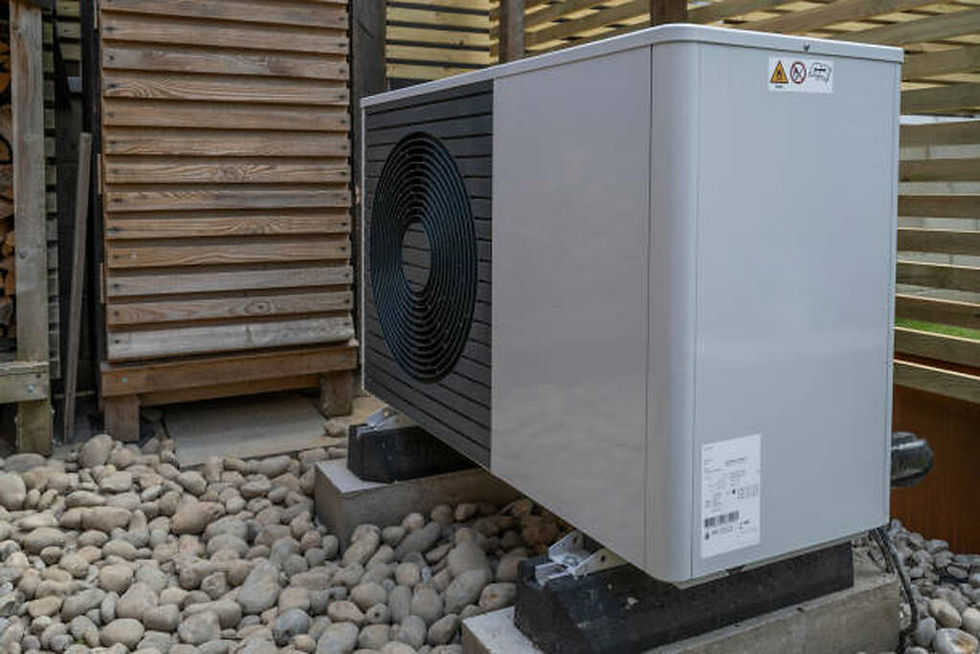Heating and Cooling with a Heat Pump: An Energy-Efficient Solution for Modern Living
- For Saving
- May 5, 2023
- 3 min read

In the quest for energy efficiency and environmentally friendly heating and cooling solutions, heat pumps have emerged as a popular choice for residential and commercial buildings. These systems can provide both heating and cooling, making them versatile options for maintaining comfortable indoor environments year-round.
We will explore the benefits and drawbacks of using a heat pump for heating and cooling, as well as tips for selecting and maintaining the right system for your needs. For Saving provides Heat Pump Installation and Repair Service in Toronto
Heat Pumps: A Primer
Heat pumps are devices that transfer heat from one location to another using a refrigeration cycle. During colder months, heat pumps extract heat from an external source, such as the air or the ground, and transfer it indoors to provide heating. In warmer months, they reverse the process, expelling heat from the building to cool the interior.
There are three main types of heat pumps: air-source, ground-source (also known as geothermal), and water-source. Each type has unique features and advantages, depending on the local climate and available resources.
Benefits of Heat Pumps for Heating and Cooling
a. Energy Efficiency
Heat pumps are highly energy-efficient, as they use electricity to move heat rather than generating it from a fuel source. This can result in significant energy savings and reduced carbon emissions compared to traditional heating and cooling systems.
b. Cost Savings
Although the initial cost of installing a heat pump can be higher than that of conventional systems, the long-term energy savings often outweigh the upfront expense. In many cases, heat pumps can reduce energy bills by up to 50% compared to traditional heating and cooling methods.
c. Environmental Impact
Heat pumps produce fewer greenhouse gas emissions than conventional systems, as they rely on electricity rather than fossil fuels. This makes them an eco-friendly choice for homeowners and businesses looking to reduce their carbon footprint.
d. Versatility
Heat pumps can provide both heating and cooling, making them an all-in-one solution for year-round comfort. This can simplify the installation and maintenance process, as there is only one system to manage.
Drawbacks of Heat Pumps for Heating and Cooling
a. Initial Cost
Heat pumps can be more expensive to install than traditional systems, particularly for ground-source or water-source models. However, the long-term energy savings and reduced environmental impact often justify the higher upfront cost.
b. Climate Limitations
Heat pumps are most efficient in moderate climates, where the temperature rarely drops below freezing. In extremely cold regions, a supplemental heating system may be necessary for adequate performance.
c. Maintenance Requirements
Heat pumps require regular maintenance to ensure optimal performance and longevity. This can include annual inspections, filter replacements, and periodic cleaning of the outdoor unit.

When considering a heat pump for heating and cooling, it's essential to choose the appropriate type and size for your specific needs. Factors to consider include the local climate, available resources, and the size and layout of your home or building.
a. Climate Considerations
Air-source heat pumps are most effective in moderate climates, while ground-source and water-source systems can provide more consistent performance in colder regions.
b. Resource Availability
Consider the resources available on your property when choosing a heat pump type. For example, if you have access to a large body of water, a water-source heat pump may be a viable option.
c. Sizing and Layout
Proper sizing is crucial for the efficiency and performance of a heat pump system. Consult with a professional HVAC contractor to determine the appropriate size for your home or building, taking into account factors like insulation levels and window quality.
Regular maintenance can help ensure the longevity and performance of your heat pump system by following these simple tips, you can keep your system running smoothly:
a. Schedule annual inspections by a qualified HVAC technician to identify and address any potential issues.
b. Replace air filters regularly to maintain optimal airflow and efficiency.
c. Keep the outdoor unit clean and clear of debris, such as leaves and snow, to prevent blockages and ensure proper functioning.
d. Consider investing in a smart thermostat to optimize your heat pump's performance and maximize energy savings.
Conclusion
Heat pumps are an increasingly popular choice for heating and cooling, offering energy efficiency, cost savings, and environmental benefits. By understanding the advantages and limitations of these systems, homeowners and businesses can make informed decisions about the best heating and cooling solution for their needs. With proper selection, installation, and maintenance, a heat pump can provide reliable, year-round comfort while reducing energy costs and minimizing environmental impact.




Comments